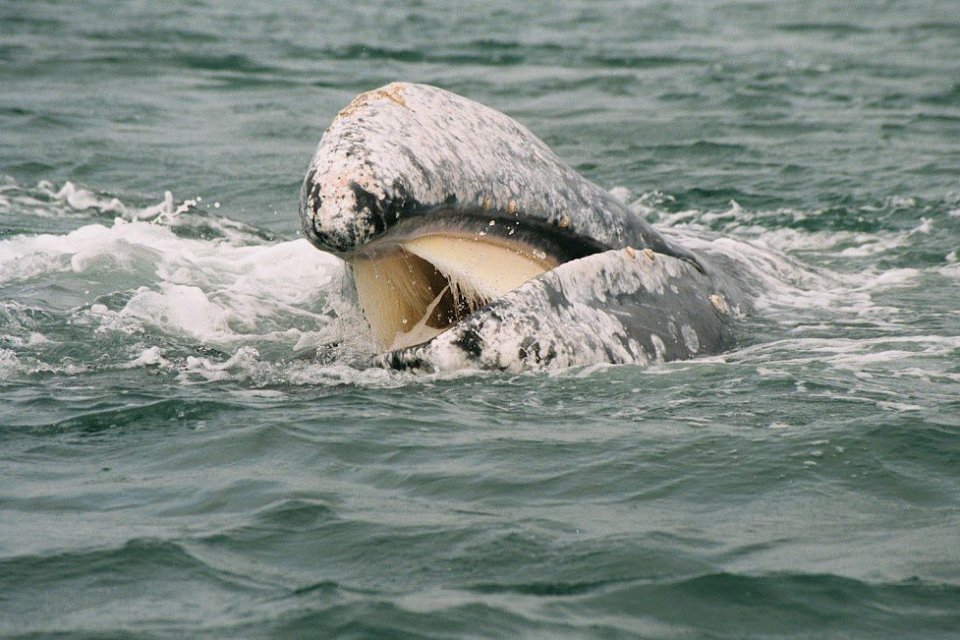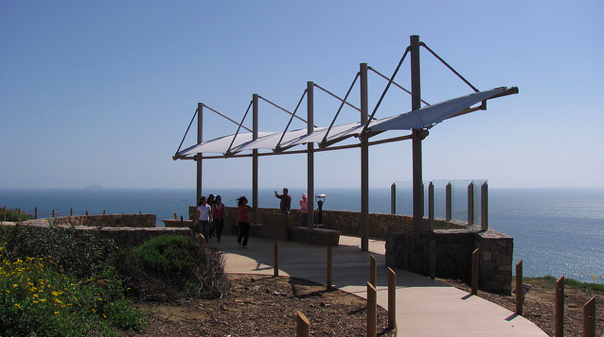 NPS Photo - showing off its coarse baleen, a gray whale skims the surface as it eats.
NPS Photo - showing off its coarse baleen, a gray whale skims the surface as it eats.The population of the Pacific gray whale has come a long way since the 19th century, almost back to their numbers before they were hunted by whalers. This is in part due to the role humankind has played in protecting the species in recent years, and the dedication of whale enthusiasts like yourself. This rise in population has also been made possible by the successful migration to Baja where female pacific gray whales may give birth to the next generation. In this late February season, some whales may still be moving south. Northern-moving whales are often too far off shore to be seen, but southern-moving whales are quite close. Southern-moving whales often relish in the plentiful kelp forests just off shore of Cabrillo National Monument. They consume sediment from the ocean floor by the mouth full and filter out the mud with their baleen plate, leaving only delicious amphipods.
 NPS Photo - this view from Kelp Forest Overlook at Cabrillo National Monument is one of the best places to watch for migrating gray whales.
NPS Photo - this view from Kelp Forest Overlook at Cabrillo National Monument is one of the best places to watch for migrating gray whales.As you watch the whales eat and play from Cabrillo's Kelp Forest Overlook, be sure to wish them well and remember the incredible journey their species has endured to be here today.
